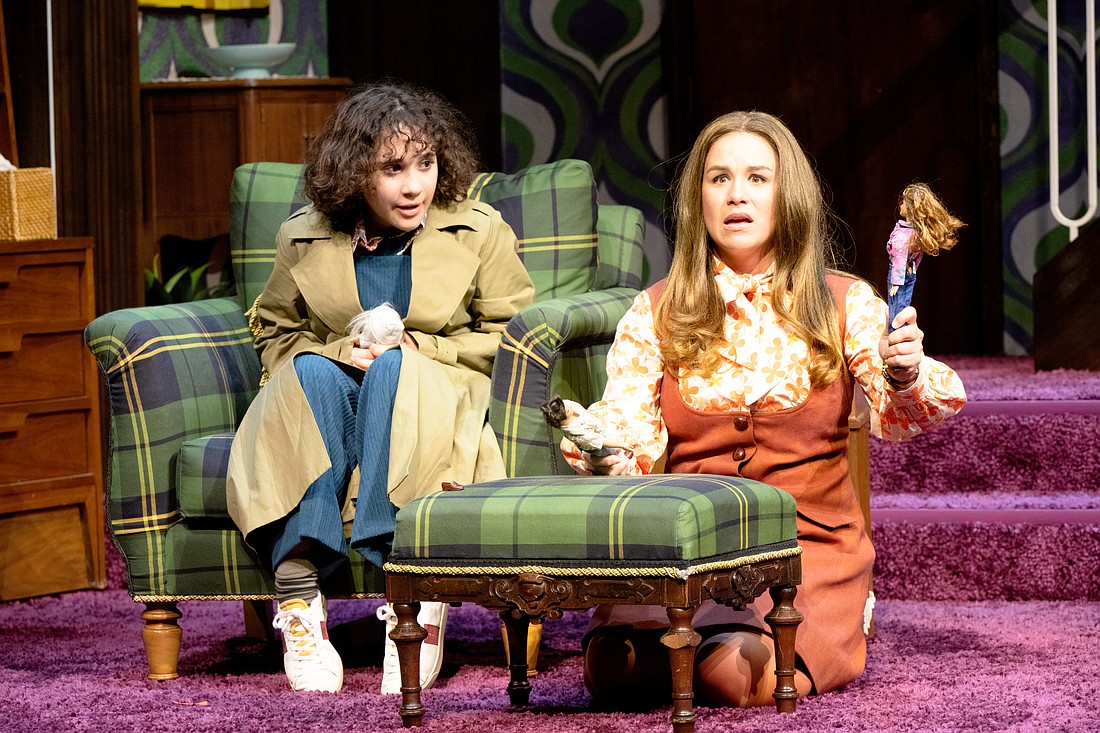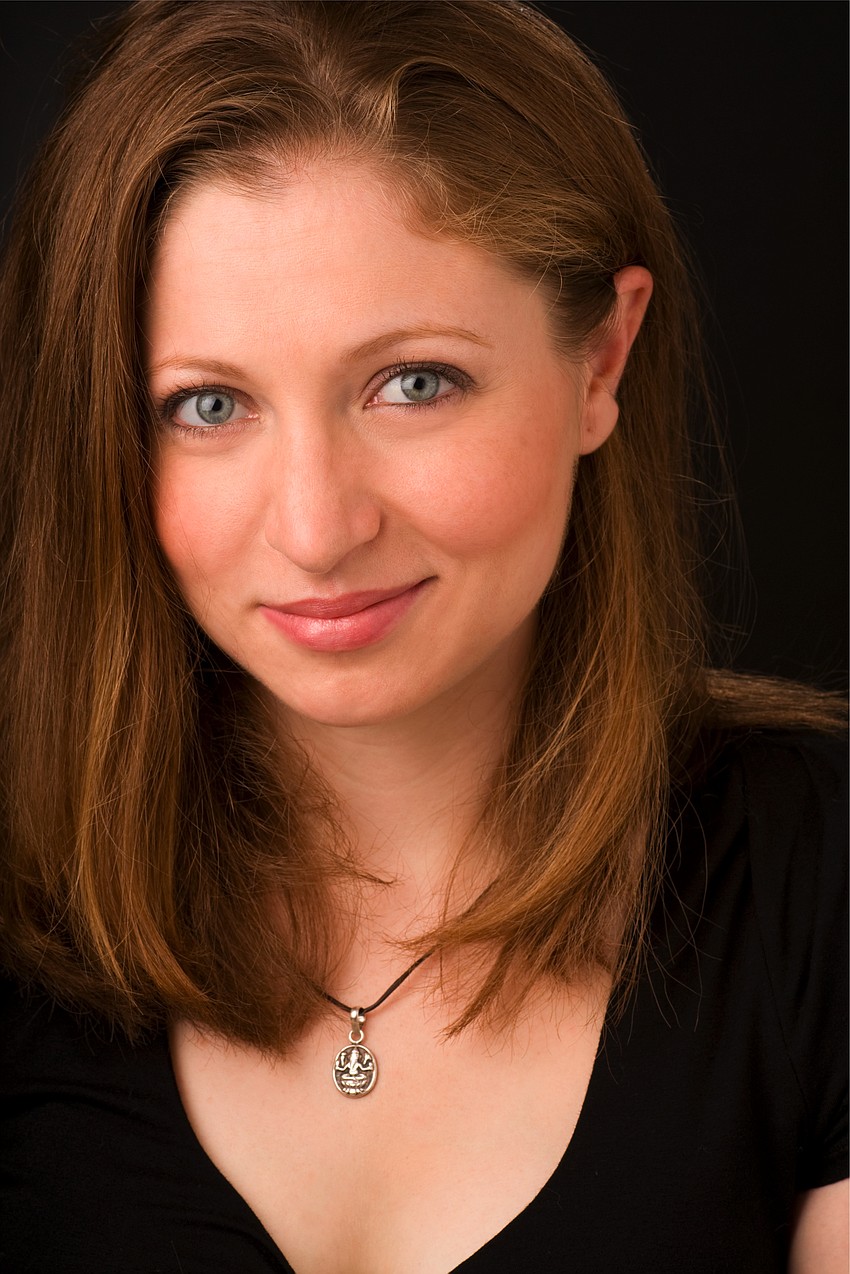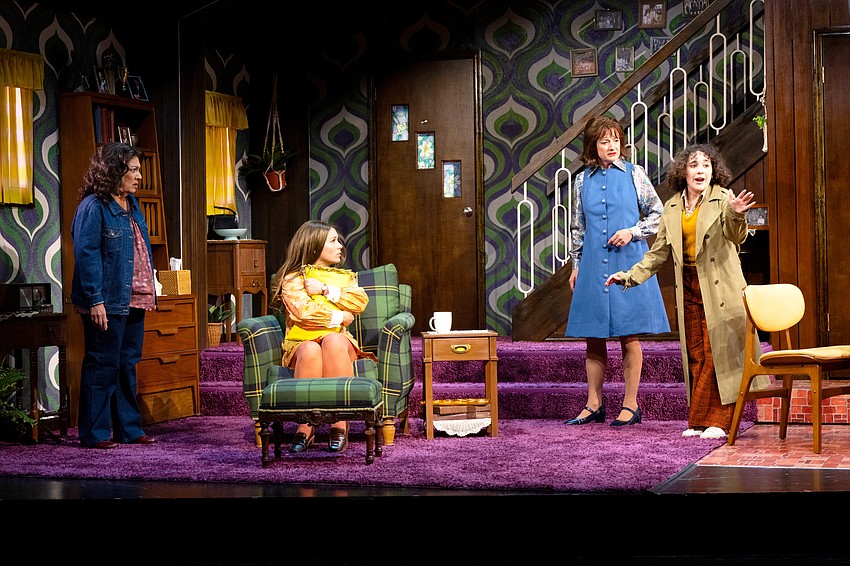- December 26, 2024
-
-
Loading

Loading

“Those who don’t remember the past are doomed to repeat it," the adage goes. Those who do can either spoof it or wax nostalgic. Playwright Katie Forgette’s “Incident at Our Lady of Perpetual Help” does both on the Asolo Repertory Theatre stage.
Forgette's play sets the Wayback Machine to 1973 and zeroes in on the O’Sheas, a working-class Irish Catholic family. Their (literally) parochial community makes up for material shortcomings with a slavish devotion to respectability.
When 19-year-old Linda, at her mother’s urging, explains the facts of life to Becky, her 13-year-old sister, the family’s reputation seems destined to implode.
Inspired by “Our Bodies Ourselves,” Linda uses frank language in her explanation, which Becky secretly records. After the judgmental parish priest gets his hands on the tape, he threatens to make an example of the O’Sheas in his next fire-and-brimstone sermon.

Forgette’s play offers a soulful lesson. In the following conversation, director Céline Rosenthal shares why it applies to people of all faiths — or no faith at all.
It was just so funny — and it's not the kind of laugh you get from a set-up punch-line joke. The comedy flows from the situation and the characters.
Becky is a 13-year-old on the precipice of puberty, and Linda is her 19-year-old sister on the other side of puberty. Their mother tasks Linda (the play’s narrator and central character) with helping her sister navigate that transformation, … and the results are just hilarious.
Based on the script, Linda has to give Becky “the talk.”
Right. And there’s nothing more wonderful, awkward and revelatory than the moment a woman learns about periods and sex. And Katie’s play deals with that moment in women’s lives in a funny, tender way that I hadn’t seen in any other works for stage or screen.
You respond with a deep belly laugh because you recognize that moment on a cellular level. It’s such a funny play because we all get so embarrassed about our bodies — men and women alike! I also love the fact that it’s a memory play.
The playwright took a very fresh approach to that structure.
Linda starts out as an adult writer trying to remember an important moment in her young life in 1973.
When she first digs into the memory, it’s very much in the perspective of her 19-year-old self. What's really beautiful is that, by the end of the play, Linda can apply her adult perspective to those moments. She realizes that at the time she didn’t grasp that her parents were three-dimensional human beings with thoughts, feelings and dreams.
(laughs) I think we all come to that shocking revelation. I also love that Linda admits that she’s an unreliable narrator. She actually says, “This is what’s called a 'memory play.' Which means that a lot of it is false.”
We get to break the fourth wall, and that’s so much fun. In a naturalistic play, the audience is a fly on the wall. But in Katie’s concept, Linda’s the storyteller, and the play flows from her memory and imagination. It isn’t exactly what happened, but that’s fun. It makes you think about all the tall tales in your family’s stories.
It's deliciously nostalgic and retro, and I think we capture the era. Dee Sullivan and Riw Rakkulchon did outstanding work on the costumes and scenic design. But our attention to period detail goes very deep. I looked at all my old family photos — and if you look really close on the set, you'll see my mother's graduation photo from grammar school.

According to Katie’s script, it’s a city like “Cleveland or Seattle or Boston or Cincinnati …”
So, the play’s setting could be anywhere. At the same time, it’s very specific to Irish Catholic culture in 1973.
Absolutely! You can still relate to Katie’s play, whether you’re Jewish or Buddhist or atheist. At one point Linda says she’s just shown you “Catholic guilt. Also known as Jewish guilt, Methodist guilt, Baptist guilt, Lutheran guilt and atheist guilt.” I think that any community that deals with a central authority figure can relate to the family’s experience with the parish priest.
Well, some actors were children in the 1970s — they loved sharing their memories with younger actors. We take digital technology for granted now, but none of it existed in 1973. Kids born after the 1980s grew up with cellphones. They have instant answers on Google and instant access to all their friends — and can’t imagine a world without that. There’s a beautiful line in the play about real-world social networks in the 1970s: “For the most part, you lived your life in person.”
Getting a chance to work with young talent! We have a local actor in the show — Willa Carpenter. She’s a 13-year-old playing a 13-year-old who’s learning about the birds and the bees. Working with Willa and seeing the world of Katie’s play through her eyes has been so much fun!